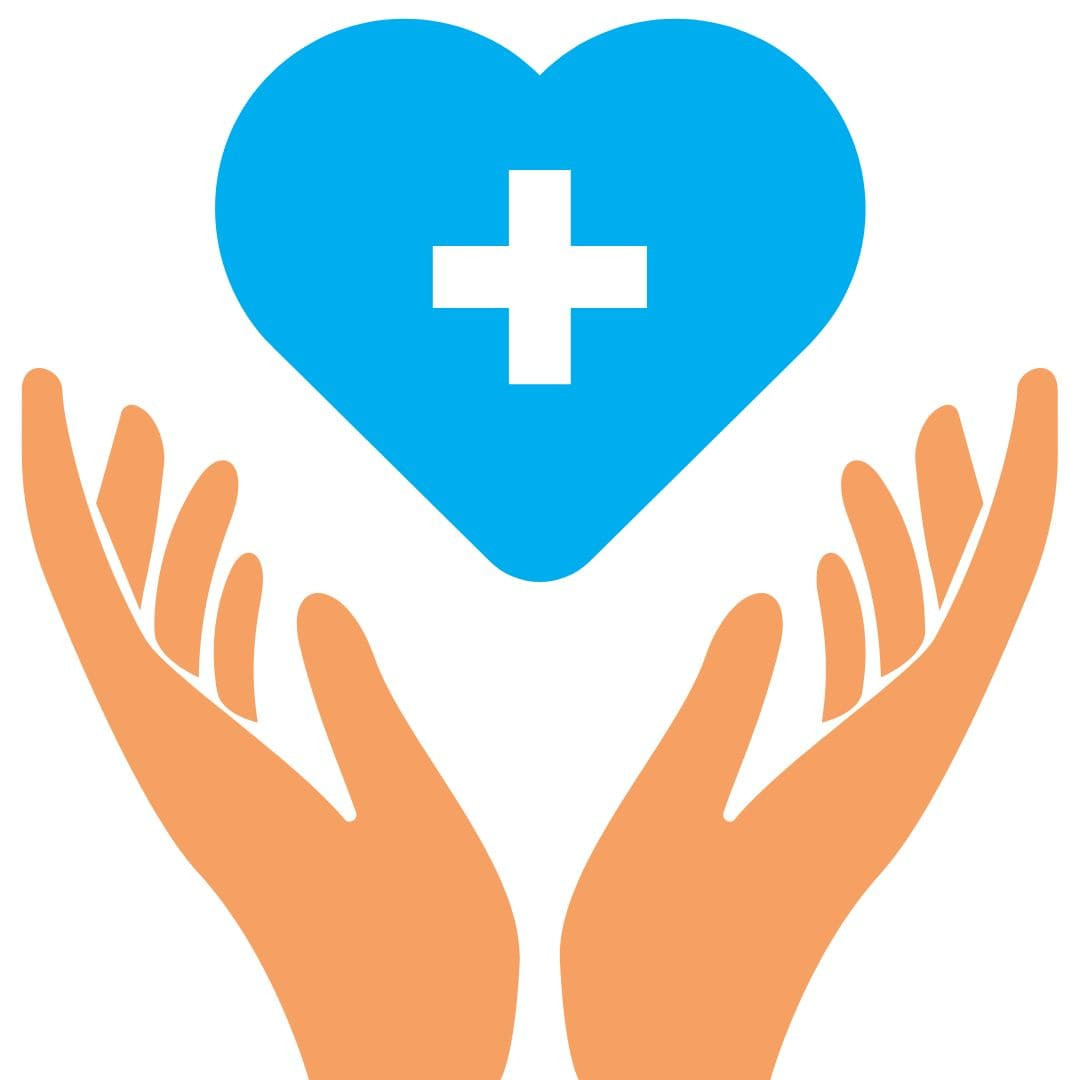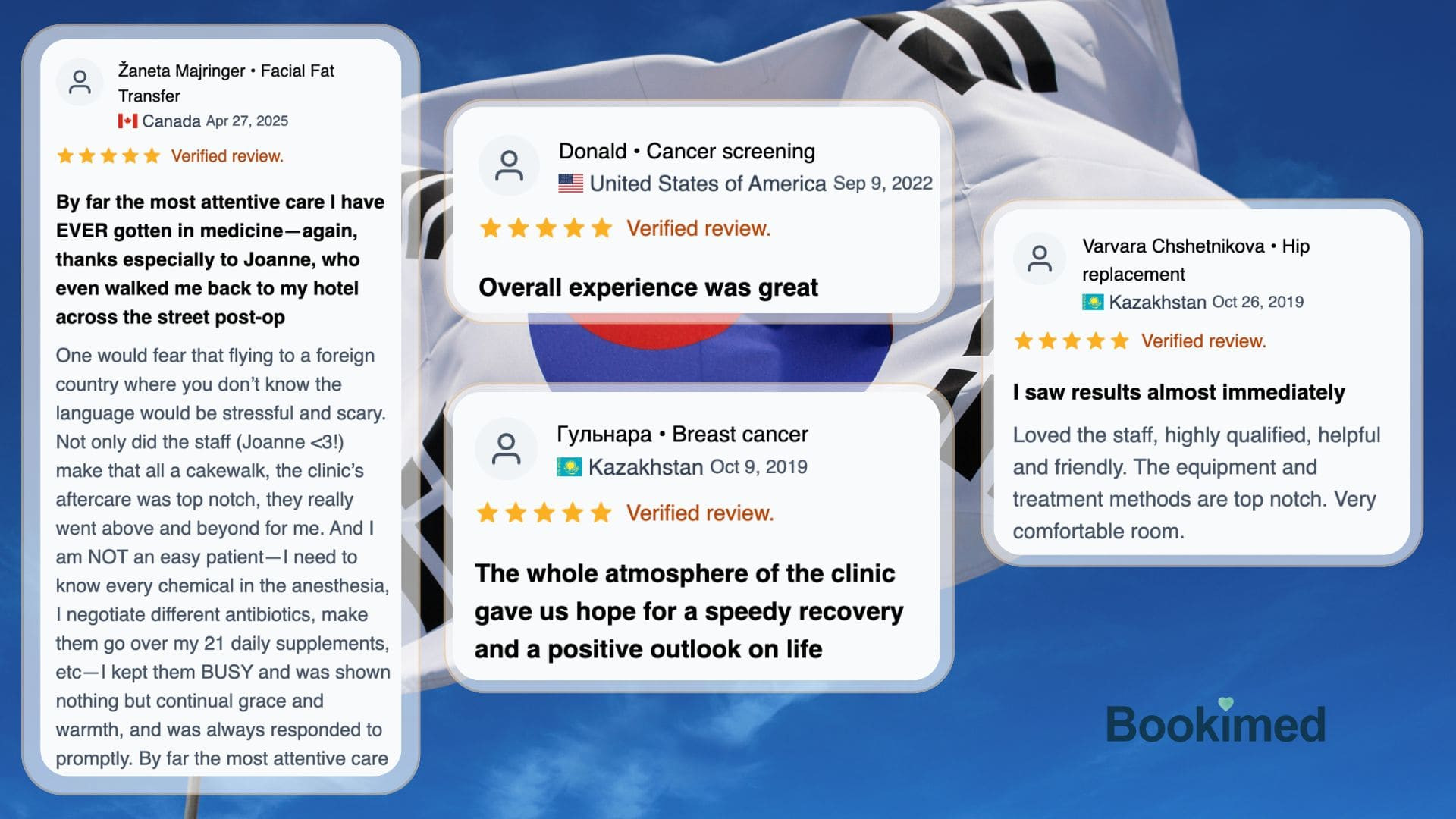Medical tourism in South Korea is gaining popularity, but understanding the costs involved is essential. SIXT.VN can guide you through the complexities of medical travel, ensuring you get the best care without breaking the bank. Let’s delve into the factors influencing the cost of medical procedures in Korea and how you can plan your trip effectively with affordable options with travel tips and healthcare insights.
1. Why Choose South Korea for Medical Tourism?
South Korea has become a leading destination for medical tourists, attracting patients from around the globe. The country’s advanced healthcare system, cutting-edge technology, and highly skilled medical professionals make it an attractive option. According to a report by the Korea Tourism Organization, South Korea attracts over 1.17 million foreign patients each year, highlighting its growing prominence in the medical tourism industry. Let’s examine the key reasons behind South Korea’s popularity in medical tourism:
- High-Quality Healthcare: South Korea’s healthcare system is ranked among the best in the world. The country boasts state-of-the-art medical facilities and highly trained medical professionals who are experts in their respective fields.
- Cost-Effectiveness: One of the primary reasons for choosing South Korea is the cost savings. Medical procedures in South Korea are significantly more affordable than in many Western countries, such as the United States, Canada, and the United Kingdom.
- Advanced Technology: South Korean hospitals and clinics are equipped with the latest medical technology.
- Wide Range of Specialties: South Korea offers a broad spectrum of medical specialties.
- Minimal Waiting Times: Compared to countries with lengthy waiting lists for certain procedures, South Korea offers quicker access to medical treatments. This is a significant advantage for patients who require timely medical intervention.
- Comprehensive Packages: Many South Korean medical facilities provide all-inclusive packages that cover not only the medical treatment but also accommodation, transportation, and translation services.
 Seoul South Korea
Seoul South Korea
2. What are the Top Medical Specialties in South Korea?
South Korea excels in various medical specialties, making it a versatile destination for medical tourists. The most sought-after specialties include:
- Plastic Surgery: South Korea is renowned as the plastic surgery capital of the world, attracting a significant number of international patients seeking cosmetic procedures. The country boasts highly skilled plastic surgeons and innovative techniques, making it a popular choice for those looking to enhance their appearance. Common procedures include eyelid surgery, rhinoplasty, facelifts, and breast augmentation.
- Cancer Treatment: With cutting-edge technology and highly skilled oncologists, South Korea offers comprehensive cancer care that often surpasses the standards in many Western countries. Advanced radiation therapies, minimally invasive surgical techniques, and personalized treatment plans contribute to the country’s high cancer survival rates.
- Health Check-ups: South Korea emphasizes preventive healthcare, offering comprehensive health check-up packages that include a variety of screenings and tests. These packages are designed to detect potential health issues early, enabling timely intervention and treatment. The country’s efficient healthcare system ensures that patients receive thorough evaluations in a streamlined manner.
- Cardiovascular Treatment: South Korea has made significant advancements in cardiovascular medicine. The country’s cardiac surgeons are skilled in performing complex procedures with high success rates.
- Orthopedics: With advanced surgical techniques and rehabilitation programs, South Korea offers comprehensive care for patients with musculoskeletal conditions.
- Organ Transplants: South Korea has established itself as a leader in organ transplantation, particularly living-donor liver transplants and kidney transplantations. The country’s transplant centers adhere to strict ethical guidelines.
3. How Much Does Medical Tourism in Korea Cost?
The cost of medical tourism in South Korea varies depending on the type of procedure, the hospital or clinic, and the specific package you choose. Generally, medical tourists can save between 40% and 70% on treatment costs compared to the United States, the United Kingdom, and Germany. According to Bookimed, here’s a cost comparison for common medical procedures:
| Medical Treatment | Korea | USA | UK | Germany | Average Savings |
|---|---|---|---|---|---|
| Liposuction | $1,500–$5,000 | $8,500–$21,000 | $6,700–$14,000 | $2,700–$9,000 | ~65% |
| Breast Cancer Surgery | $8,500–$14,100 | $15,000–$55,000 | $9,500–$17,500 | $15,000–$19,000 | ~50% |
| Coronary Artery Bypass (CABG) | $59,000–$67,000 | $150,000–$200,000 | ~$100,000 | $65,000–$85,000 | ~50% |
| Medical Check-Up | $500–$900 | $2,000–$3,000 | ~$1,200 | $1,900–$3,000 | ~60% |
| Knee Replacement | $13,500–$16,000 | $32,500–$49,000 | $16,000–$31,000 | $18,000–$22,500 | ~45% |
| Kidney Transplant | $40,000–$70,000 | ~$446,800 | $70,000–$75,000 | From $58,000 | ~70% |
3.1. Factors Affecting the Cost
Several factors influence the overall cost of medical tourism in South Korea. Here are some key elements to consider:
- Type of Procedure: The complexity and nature of the medical procedure significantly impact the cost. Surgical procedures, such as plastic surgery or organ transplants, generally cost more than non-surgical treatments like health check-ups or dermatological consultations.
- Hospital or Clinic: The choice of medical facility plays a crucial role in determining the cost. Well-established hospitals and clinics with advanced technology and renowned specialists often charge higher fees.
- Surgeon’s Experience: The expertise and reputation of the surgeon can also affect the cost. Highly experienced surgeons with a track record of successful outcomes may command higher fees for their services.
- Package Inclusions: Many medical facilities offer comprehensive packages that include the medical procedure, accommodation, transportation, and translation services.
- Location: The location of the medical facility can impact the overall cost. Facilities located in major cities like Seoul may have higher prices due to the higher cost of living and operating expenses.
 Korean medical tourism package
Korean medical tourism package
4. Breaking Down the Costs: What to Expect?
When planning your medical trip to South Korea, it’s helpful to have a detailed understanding of the various costs involved. Here’s a breakdown of what you can expect:
- Medical Procedure Costs: This is the primary expense and includes the surgeon’s fees, anesthesia costs, operating room charges, and any necessary medical supplies.
- Accommodation: Depending on the length of your stay and the type of accommodation you choose, costs can vary significantly.
- Transportation: You’ll need to factor in the cost of flights to and from South Korea, as well as local transportation expenses.
- Translation Services: If you don’t speak Korean, you’ll need to hire a translator.
- Pre- and Post-operative Care: This includes consultations, medical tests, and follow-up appointments.
- Medications: The cost of prescription medications can vary depending on the type and duration of treatment.
- Travel Insurance: It’s essential to have travel insurance that covers medical emergencies and unforeseen events.
- Miscellaneous Expenses: You should also budget for miscellaneous expenses such as meals, personal care items, and leisure activities.
5. Finding Affordable Options
While South Korea offers cost savings compared to many Western countries, it’s still important to find affordable options that fit your budget. Here are some tips:
- Research and Compare Clinics: Take the time to research and compare different clinics and hospitals.
- Consider Package Deals: Look for medical facilities that offer all-inclusive packages.
- Negotiate Prices: Don’t hesitate to negotiate prices with the medical facility.
- Choose Accommodation Wisely: Select accommodation options that fit your budget.
- Travel During Off-Peak Seasons: Consider traveling during off-peak seasons to take advantage of lower airfares and accommodation rates.
- Look for Discounts: Some medical facilities offer discounts or special promotions for international patients.
- Use Local Transportation: Opt for local transportation options such as buses and subways to save on transportation costs.
6. Medical Tourism Korea Cost: Detailed Procedure Costs
To provide a clearer picture of the costs associated with medical tourism in South Korea, here are some detailed cost ranges for common procedures:
6.1. Plastic Surgery Costs
- Eyelid Surgery (Blepharoplasty): $1,500 – $3,500
- Rhinoplasty (Nose Job): $3,000 – $7,000
- Facelift: $5,000 – $12,000
- Breast Augmentation: $6,000 – $10,000
- Liposuction: $1,500 – $5,000
6.2. Cancer Treatment Costs
- Chemotherapy: $1,000 – $3,000 per session
- Radiation Therapy: $3,000 – $10,000 per course
- Surgery: Varies widely depending on the type and complexity of the surgery, ranging from $8,000 to $50,000+
6.3. Health Check-Up Costs
- Basic Health Check-Up: $500 – $1,000
- Comprehensive Health Check-Up: $1,000 – $3,000
6.4. Cardiovascular Treatment Costs
- Angioplasty: $10,000 – $20,000
- Coronary Artery Bypass Grafting (CABG): $59,000 – $67,000
- Heart Valve Replacement: $50,000 – $70,000
6.5. Orthopedic Surgery Costs
- Knee Replacement: $13,500 – $16,000
- Hip Replacement: $14,000 – $17,000
- Spinal Fusion: $15,000 – $25,000
6.6. Organ Transplant Costs
- Kidney Transplant: $40,000 – $70,000
- Liver Transplant: $100,000 – $200,000
- Heart Transplant: $150,000 – $300,000
These cost ranges are approximate and can vary based on the specific circumstances of each patient.
 medical tourism in Seoul
medical tourism in Seoul
7. Payment Options and Insurance
Understanding your payment options and insurance coverage is crucial for managing the financial aspects of medical tourism in South Korea. Here’s what you need to know:
7.1. Payment Methods
Most medical facilities in South Korea accept various payment methods, including:
- Credit Cards: Visa and Mastercard are widely accepted.
- Bank Transfers: Many facilities accept international bank transfers.
- Cash: Some facilities may offer discounts for cash payments.
7.2. Insurance Coverage
It’s important to note that South Korea’s National Health Insurance (NHIS) typically does not cover short-term visitors. Therefore, medical tourists must pay out of pocket unless they have private insurance coverage.
Before traveling, check with your insurance provider to determine if your policy covers medical treatments abroad. If your policy does not provide adequate coverage, you may want to consider purchasing a travel insurance plan that specifically covers medical expenses.
8. Accommodation and Transportation
8.1. Accommodation Options
South Korea offers a range of accommodation options to suit different budgets and preferences. Some popular choices include:
- Hotels: Major cities like Seoul have a wide variety of hotels ranging from budget-friendly to luxury.
- Serviced Apartments: These apartments offer more space and amenities than traditional hotel rooms.
- Medical Guesthouses: Some medical facilities offer on-site or nearby guesthouses.
8.2. Transportation
Navigating South Korea is relatively easy thanks to its efficient transportation system. Options include:
- Flights: For those traveling from overseas, flying into Incheon International Airport (ICN) is the most convenient option.
- Subways: Seoul has an extensive subway system that is clean, safe, and easy to use.
- Buses: Buses are another affordable and convenient way to get around.
- Taxis: Taxis are readily available.
9. Legal and Ethical Considerations
When considering medical tourism in South Korea, it’s important to be aware of the legal and ethical considerations.
9.1. Medical Malpractice Insurance
All registered medical clinics in South Korea are required to carry malpractice insurance, which provides financial protection to patients in case of medical errors or complications.
9.2. Ethical Standards
South Korea adheres to strict ethical standards in healthcare, ensuring that patients receive safe and appropriate treatment. The government also regulates pricing and cracks down on illegal brokers to prevent overcharging and scams, making Korea one of the safest countries for medical tourists.
9.3. Patient Rights
Patients in South Korea have certain rights, including the right to informed consent, confidentiality, and access to medical records. It’s important to be aware of these rights.
10. Planning Your Trip with SIXT.VN
Planning a medical trip to South Korea can be overwhelming, but SIXT.VN is here to help. Our comprehensive services include:
- Consultation: We provide personalized consultation to help you find the best medical facilities and treatment options.
- Booking: We assist with booking appointments, accommodation, and transportation.
- Translation: We offer translation services.
- Support: We provide 24/7 support.
With SIXT.VN, you can rest assured that your medical trip to South Korea will be seamless and stress-free. Contact us today at +84 986 244 358 or visit our website at SIXT.VN to learn more. Our address is 260 Cau Giay, Hanoi, Vietnam.
 Wooridul Spine Hospital
Wooridul Spine Hospital
11. Preparing for Your Trip
Before you travel to South Korea for medical treatment, it’s important to prepare both physically and mentally. Here are some steps you can take:
- Consult with Your Doctor: Discuss your plans with your primary care physician and obtain any necessary medical records.
- Pack Appropriately: Pack comfortable clothing, any necessary medications, and personal care items.
- Learn Basic Korean Phrases: Knowing a few basic Korean phrases can be helpful.
- Research Local Customs: Familiarize yourself with South Korean customs and etiquette.
- Stay Connected: Make sure you have a way to stay connected with family and friends.
- Plan for Recovery: Plan for your recovery period and ensure you have a comfortable place to rest.
12. FAQ: Medical Tourism Korea Cost
12.1. Do Korean doctors speak English? Will I need a translator?
Yes, most medical institutions serving international patients have English-speaking medical staff. Still, asking for a translator is common and helps avoid misunderstandings.
12.2. How do I choose the right medical facility in Korea?
Check for medical certification, review the doctor’s credentials, read verified patient reviews, compare before/after photos, request a detailed quote, check package inclusions, and assess communication & transparency.
12.3. Is it safe to travel to Korea alone for treatment?
Yes, Korea is one of the safest countries in the world. Plus, SIXT.VN patients receive 24/7 support and help with transport, check-ins, and medical visits.
12.4. Can I combine medical treatment with tourism?
Absolutely. Patients can schedule time to recover while visiting places like Bukchon Hanok Village or Jeju Island, especially after minor procedures or checkups.
12.5. Do I need to bring medical records?
Yes. Bring medical records (SIXT.VN will translate them for free), test results, and a list of medications you’re taking.
 Korean medical tourism package
Korean medical tourism package
13. Real Patient Stories
Hearing from others who have undergone medical treatment in South Korea can provide valuable insights and reassurance. Here are a few real patient stories:
- Žaneta Majringer from Canada: Underwent plastic surgery and praised the supportive staff and successful outcome.
- Lola Saydakhmedova from Russia: Received cancer screening and appreciated the thorough examination and professional service.
- Vladimir Kondratyuk from Russia: Had a comprehensive health check-up and noted the high level of care and attention.
- Anonymous from Israel: Underwent spine surgery and commended the skilled surgeon.
These stories highlight the positive experiences of medical tourists in South Korea and the benefits of choosing the country for healthcare needs.
14. Tips for a Smooth Experience
To ensure a smooth and successful medical tourism experience in South Korea, consider the following tips:
- Plan Ahead: Start planning your trip well in advance to allow ample time for research, booking, and preparation.
- Communicate Clearly: Maintain clear and open communication with your medical team and ask questions if you have any concerns.
- Follow Instructions: Adhere to all pre- and post-operative instructions provided by your healthcare provider.
- Stay Positive: Maintain a positive attitude and focus on your recovery.
- Be Patient: Understand that medical procedures can take time and results may not be immediate.
- Seek Support: Lean on your support network of family and friends.
- Enjoy the Experience: Take the opportunity to explore South Korea and enjoy its culture.
15. Conclusion
Navigating the Medical Tourism Korea Cost doesn’t have to be daunting. South Korea offers a blend of advanced medical care and significant cost savings, making it a compelling destination for medical tourists. By understanding the costs involved, finding affordable options, and planning your trip with SIXT.VN, you can access high-quality healthcare without exceeding your budget. Whether you’re seeking plastic surgery, cancer treatment, or a comprehensive health check-up, South Korea has something to offer. Contact SIXT.VN today to start planning your medical journey. Address: 260 Cau Giay, Hanoi, Vietnam. Hotline/Whatsapp: +84 986 244 358. Website: SIXT.VN. Let us help you make your medical tourism experience in South Korea a success. With our guidance, you’ll discover that quality healthcare and affordability can go hand in hand.



